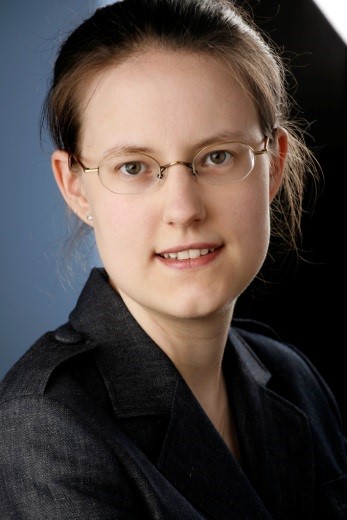 Nicole Steils is a Research Associate at the Social Care Workforce Research Unit in the Policy Institute at King’s College London. As part of the UTOPIA (Using Telecare with Older People In Adult Social Care) study, Nicole Steils travelled to Frankfurt am Main, Germany, to visit and explore the ‘independent living centre’ exhibition at Frankfurt University of Applied Sciences. (637 words)
Nicole Steils is a Research Associate at the Social Care Workforce Research Unit in the Policy Institute at King’s College London. As part of the UTOPIA (Using Telecare with Older People In Adult Social Care) study, Nicole Steils travelled to Frankfurt am Main, Germany, to visit and explore the ‘independent living centre’ exhibition at Frankfurt University of Applied Sciences. (637 words)
Once a month this exhibition is open to the public. An expert from the university and a representative from a disability aid federation guide people through the independent living centre and explain the different exhibits and installations. I was one of about 25 people who visited on the day. On other days the exhibition is used as part of the training of the 3,200 students from the Faculty of Health and Social Work as well as students from other health professional training programmes.
Covering 150 square meters (1,615 square feet) the exhibition consists of various products, designs and technological solutions aiming to support people to live in their own home and to aid mobility in and outside the home. The exhibition also shows examples of products aiming to assist family carers or paid staff. In addition, our two guides showed us some simple DIY solutions for sometimes very costly products on the open market.
Mostly, the exhibition concentrates on well-established products and installations, for example railings, bathroom seats or lighting solutions and/or telecare solutions, such as personal (pendant) alarms, fall detectors and environmental or motion sensors. Information about service providers, for example, reacting to alarms was also given, as well as how to obtain and pay for devices or services via the German care insurance system. From an English perspective it was very interesting to observe that most visitors were not aware that detectors and environmental sensors could be attached to a personal alarm system and thus be monitored by a service provider—although that comes at an additional cost and potentially does not cover all parts of Germany.
In addition, the tour also introduced telepresence solutions for family carers that allow a person at a distance to communicate with the person they support (‘It’s like Skype on a stick on wheels’). Some of which are available on the market, while other ‘solutions’ never made it out of the development lab—for good reasons: who wants a huge robot stuck in the middle of the kitchen because the batteries have run out?
Our guides explained the potential advantages of the products and installations from 47 manufacturers. At the same time, they also highlighted possible disadvantages and negative experiences some users and/or carers had reported. As so often in social care, there is no one-size-fits-all-solution.
Visitors to the exhibition also described their own experiences. One account stuck in my mind: this person recounted the situation of an older man living in rented accommodation, who, after some changes to the flat, was living very much independently inside his home, but struggled to get outside of the house with his Zimmer-frame as the landlord refused to make changes to the entrance door of the building because of the cost. This reminded me of my rented accommodation in the UK, where two free hands are needed to leave the house: obviously also a struggle for people with prams or pushchairs—or a physical disability. There is lots to do in Germany and the UK.
The tour of the exhibition completed with the introduction of social robots. The visitors were invited to interact with the NAO robot which (or is it who?) is used in education. Afterwards the guides introduced the PARO seal robot and the dinosaur robot PLEO, now sometimes used in residential care and dementia care settings and for which research has been completed or is continuing in various countries in which they are used.
Visiting the exhibition was a good introduction to what assistive technologies (AT) and telecare devices and services are currently available in Germany, and the current care situation in general. It also helped to inform the presentation of findings from the UTOPIA study at the German Society of Gerontology and Geriatrics, sections III and IV conference, in Fulda, Germany that I travelled to the next day.
Nicole Steils is a Research Associate at the Social Care Workforce Research Unit in the Policy Institute at King’s College London. The UTOPIA project.